If you have been snorkeling and diving in the Mexican Caribbean for a long time, you may have noticed some changes to our reef. You may think you are imagining it or romanticizing the “good old days” before the Riviera Maya exploded with tourism. Unfortunately, what you suspect is true.
The Mesoamerican Reef, the barrier reef system that protects our coastline, is under attack. The coral is dying. The reef is no longer able to support the fish and other marine life that rely on it to survive. Invasive and predatory fish species are moving in.
Featured Photo: ©Underwater Earth XL+Catlin Seaview Survey
Coral reefs are among the most biologically diverse and crucial ecosystems on Earth, Approximately 25% of all marine life, including species like sharks, sea turtles, seahorses, and octopuses, rely on coral reefs at some point in their life cycle. Saving the Mesoamerican Reef is crucial to more than the life below the sea.
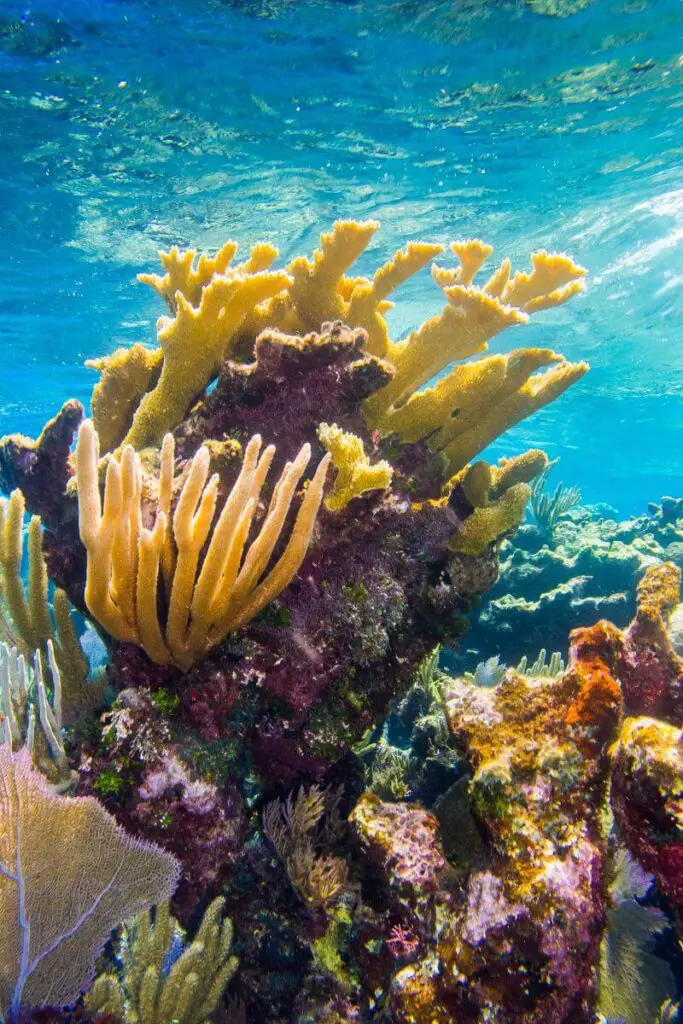
Reefs also play a critical role in protecting coastal infrastructure and mitigating losses from natural disasters such as storms, tsunamis, floods, and erosion. Despite their ecological and economic value, coral reefs face numerous threats, including pollution, disease, climate change, and destructive illegal fishing practices, leading to a significant decline in reef health globally.
About the Mesoamerican Reef
Table of Contents
Mexico’s Mesoamerican Reef is an extraordinary marine region stretching over 1,000 kilometers from the northern tip of the Yucatan Peninsula through Belize and Guatemala, to the Bay Islands in Honduras. It is the second-largest barrier reef system in the world and a vital component of the world’s marine environment.
The Mesoamerican Reef is renowned for its vast biodiversity. It is home to over 65 species of stony coral, 350 species of mollusk, and more than 500 species of fish, including the commercially important spiny lobster.
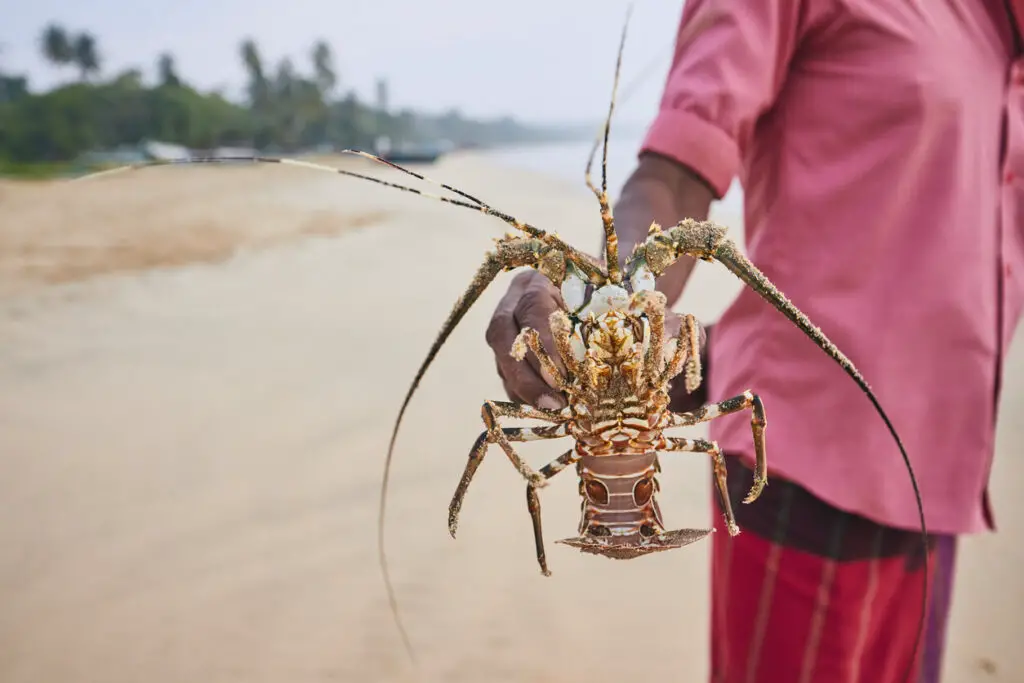
This rich biodiversity not only makes the reef a crucial habitat for marine life but also supports the livelihoods of local communities that depend on tourism and fishing.
However, this vital ecosystem faces significant threats. Pollution, particularly from agricultural runoff and sewage discharge, coral bleaching due to rising ocean temperatures, and destructive fishing practices all jeopardize the health of the reef.
Threats to the Health of Our Reef
Mexico’s Yucatán Peninsula is a hotspot of biodiversity. The coastline, a 240-mile stretch of white sand beaches and turquoise waters is teeming with life yet faces critical challenges. In Quintana Roo, the population has surged by 1,220% over the past 35 years. The impact of unchecked development has led to habitat destruction and negatively impacted local ecosystems and freshwater supplies.
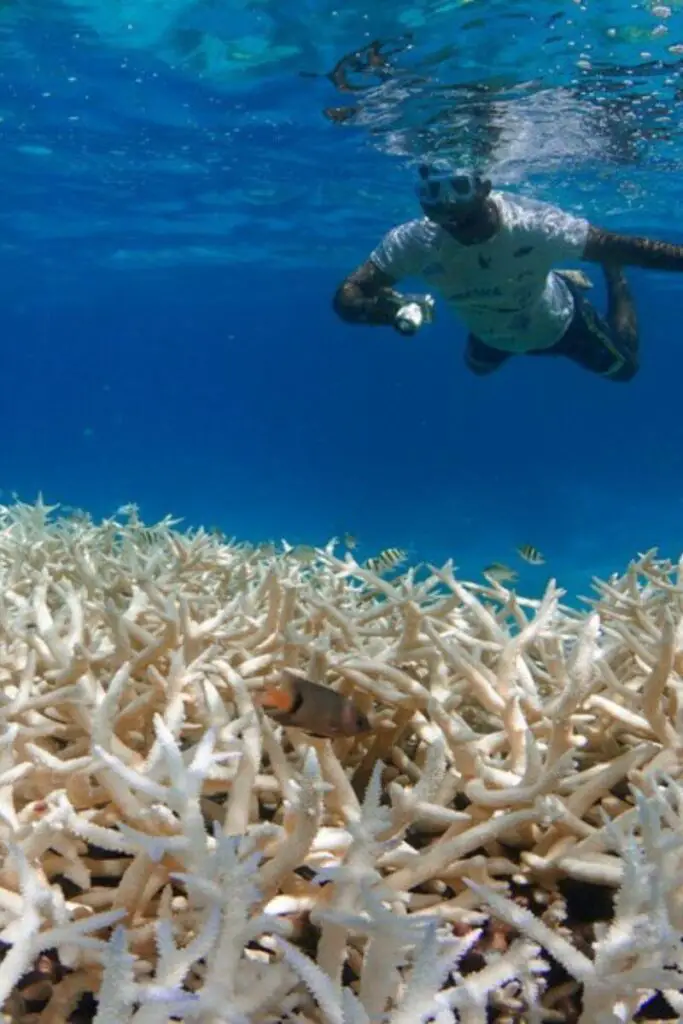
To meet the demands of skyrocketing tourism, unregulated development along the coast has exacerbated issues like coral diseases, bleaching, erosion, and the endangerment of various marine species.
Additionally, illegal fishing activities are severely depleting populations of lobster, octopus, and conch, with local communities struggling to enforce protected marine areas effectively.
What’s Being Done to Save the Mesoamerican Reef
Fortunately, NGOs and government agencies are actively working along the Yucatán Peninsula on a variety of projects. These initiatives focus on integrated management strategies and influencing environmental regulations, ranging from establishing no-fishing zones to developing coral reef stress response systems, monitoring reefs, coral restoration, and drafting policies that benefit the marine environment. These projects are essential in conducting research, gathering data, and aiding in the restoration of these vital ecosystems.
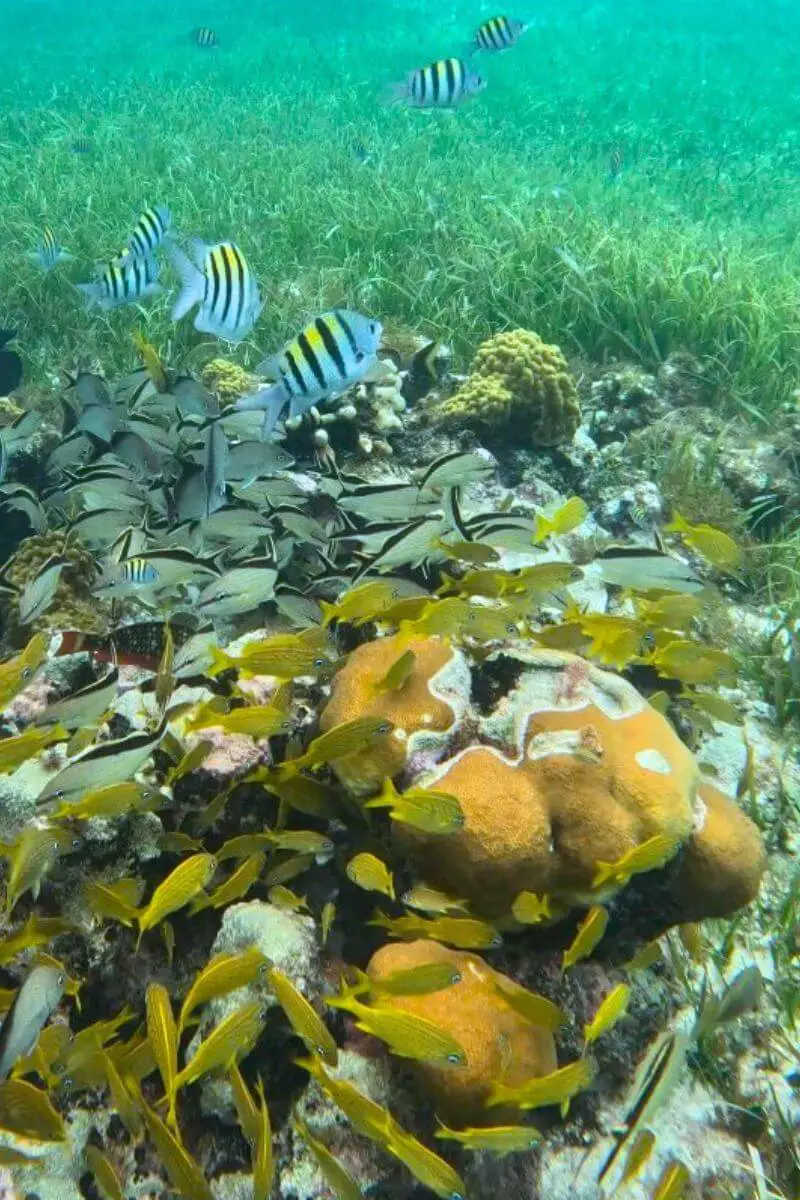
The establishment of the Caribe Mexicano Biosphere Reserve in 2016, a vast marine coastal reserve covering over 5.7 million hectares, was a significant step towards meaningful and regulated conservation.
This reserve protects part of the Mesoamerican Barrier Reef System, the world’s only transboundary barrier reef, stretching from Honduras to Mexico. The goal of the reserve is to protect a broad array of Caribbean ecosystems, including coral reefs, seagrass beds, mangroves, and coastal dunes, conserving this natural treasure for future generations.
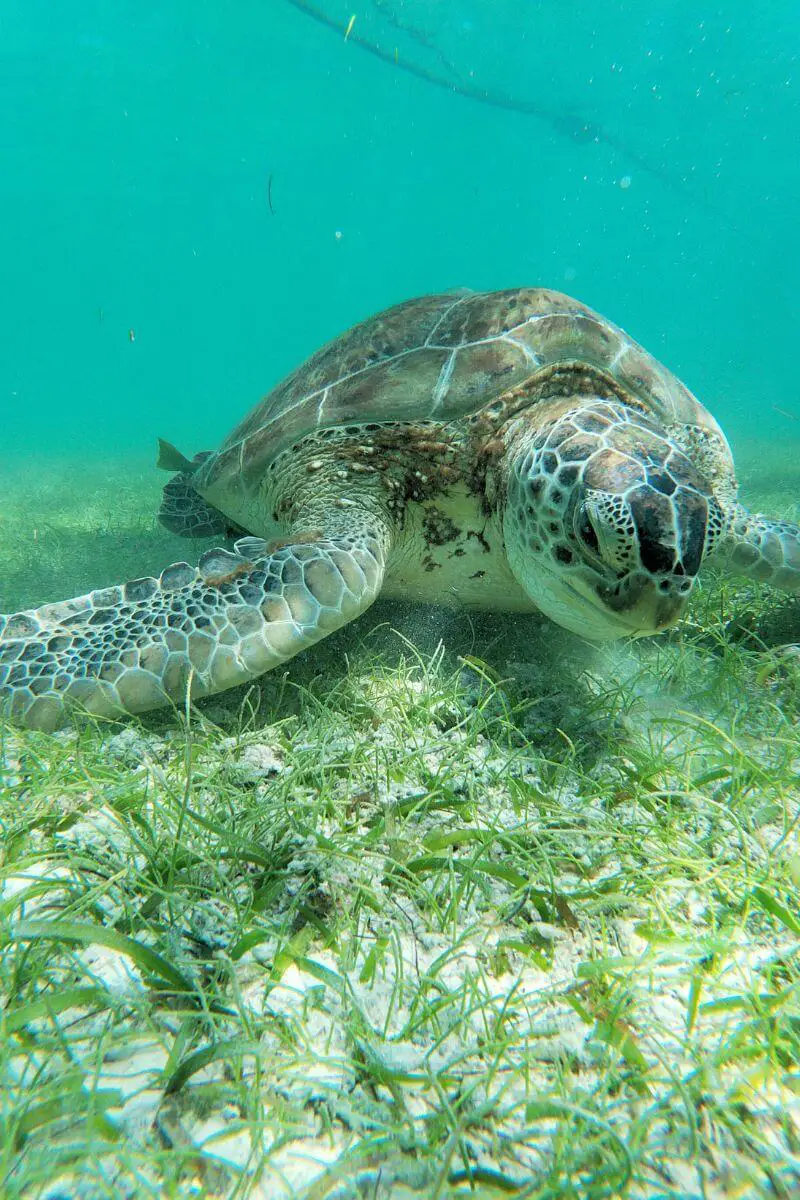
Right now, the Mesoamerican Barrier Reef is at a critical juncture. With the dual pressures of global warming and tourism, concerted efforts are more crucial than ever to safeguard this 700-mile reef system. The ongoing initiatives represent a collective endeavor to preserve and restore one of the world’s most vital marine habitats.
It has been reported that since 1950, the world has lost 50% of its coral reefs. Concerted efforts are essential to ensuring the future health of the Mesoamerican Reef, upon which so many species and human communities depend.
Saving the Mesoamerican Reef: What Can We Do?
Here are 25 clear and actionable tips for travelers and Riviera Maya residents who want to help protect and save the Mesoamerican Reef:
Tips for Being a Reef-Safe Traveler!
- Use Reef-Safe Sunscreen: Choose certified reef-safe sunscreens free of chemicals harmful to corals, like oxybenzone and octinoxate, which can contribute to coral bleaching. These ingredients are toxic even in small quantities. Better yet…skip the sunscreen and opt for a rashguard with a high SPF.
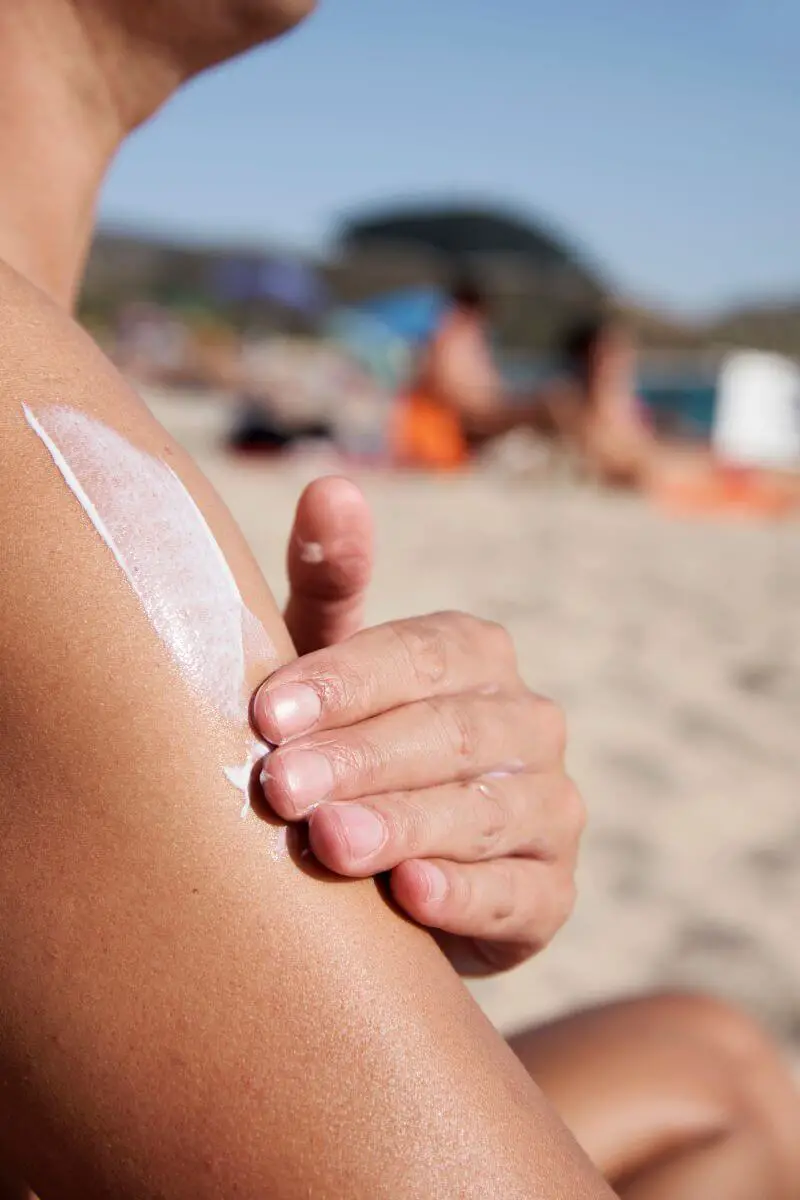
- Reduce Plastic Use: Reduce your plastic footprint by opting for eco-friendly items such as refillable water bottles, reusable straws, and items made from recycled plastics. Single-use plastic items often end up in marine environments, entangling wildlife and degrading into harmful microplastics.
- Conserve Water: Reducing water usage helps prevent runoff laden with pollutants from reaching the ocean, thereby protecting coral reef health.
- Support Sustainable Seafood: Choose seafood from sources that use sustainable fishing methods. Do not support businesses selling fish that has been illegally caught or is out of season. This helps prevent overfishing and protects the reef ecosystem from destructive fishing practices.
- Volunteer for Reef and Beach Cleanups: Participate in organized cleanups which help remove debris that can smother coral reefs and harm marine life.
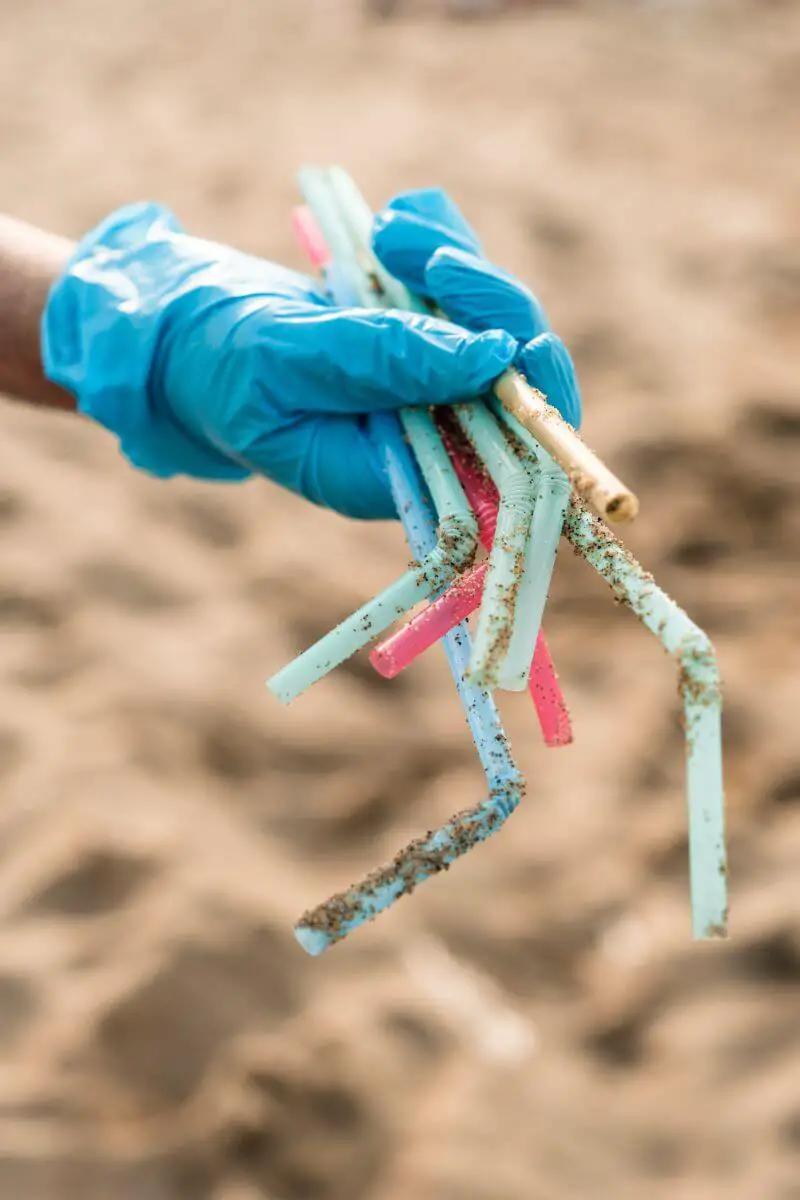
- Don’t Buy Coral or Marine Life Souvenirs: Avoid souvenirs made from coral or other marine life, which contributes to the depletion of vital marine ecosystems.
- Support Local Conservation Efforts: Financial contributions or volunteer work with conservation organizations such as CEA and S.A.V.E. make a significant impact on their ability to conduct research and conservation activities.
- Follow Responsible Fishing Practices: Book your charter with a licensed captain who knows and follows Mexican fishing regulations. Respect regional bag limits. Carefully release any endangered or banned species. Never anchor on or near the reef or seagrass beds.
- Practice Reef-Safe Diving & Snorkeling: Maintain a safe distance from coral structures to prevent physical damage. Do not touch the coral, stand on the reef or disturb the sand around the reef with your flippers.
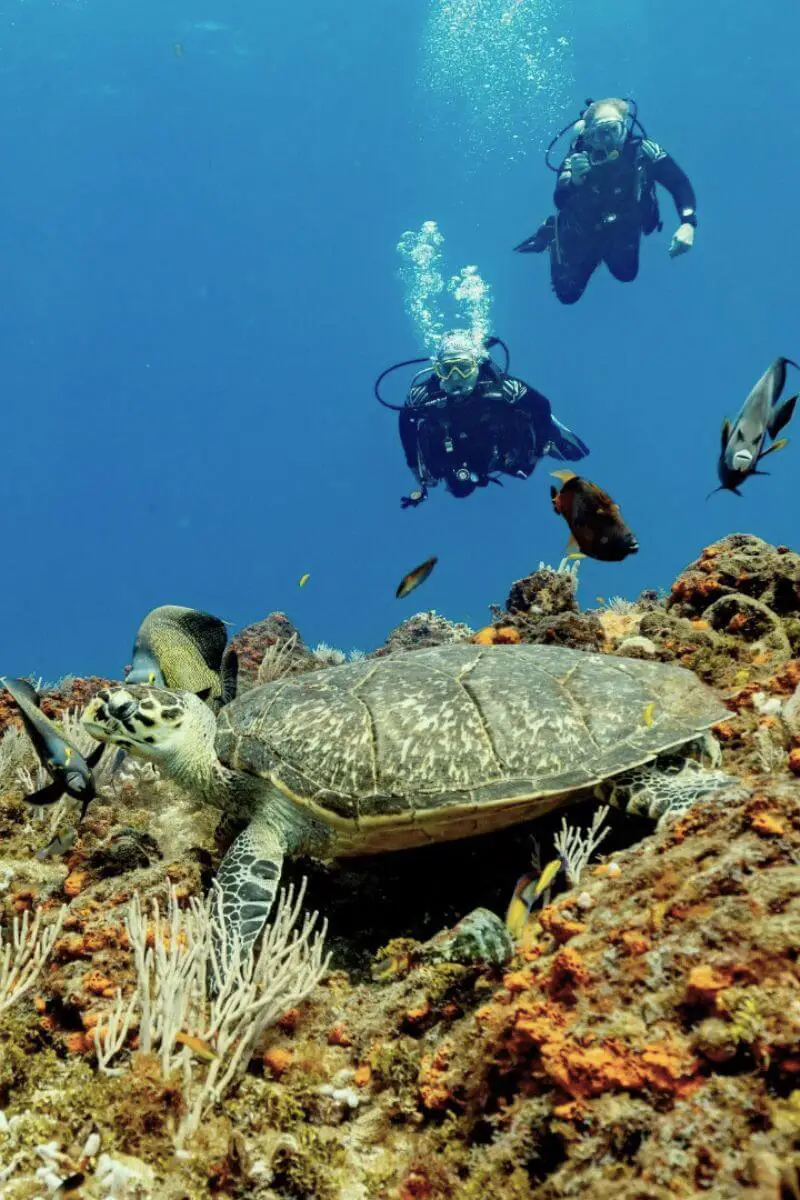
- Support Reef-Friendly Businesses: Choose businesses that practice sustainability, such as eco-friendly hotels or well-established dive shops that engage in responsible tourism.
- Leave No Trace: When leaving the beach, clean up after yourself to prevent any waste from entering the marine environment, which could harm coral and marine life.
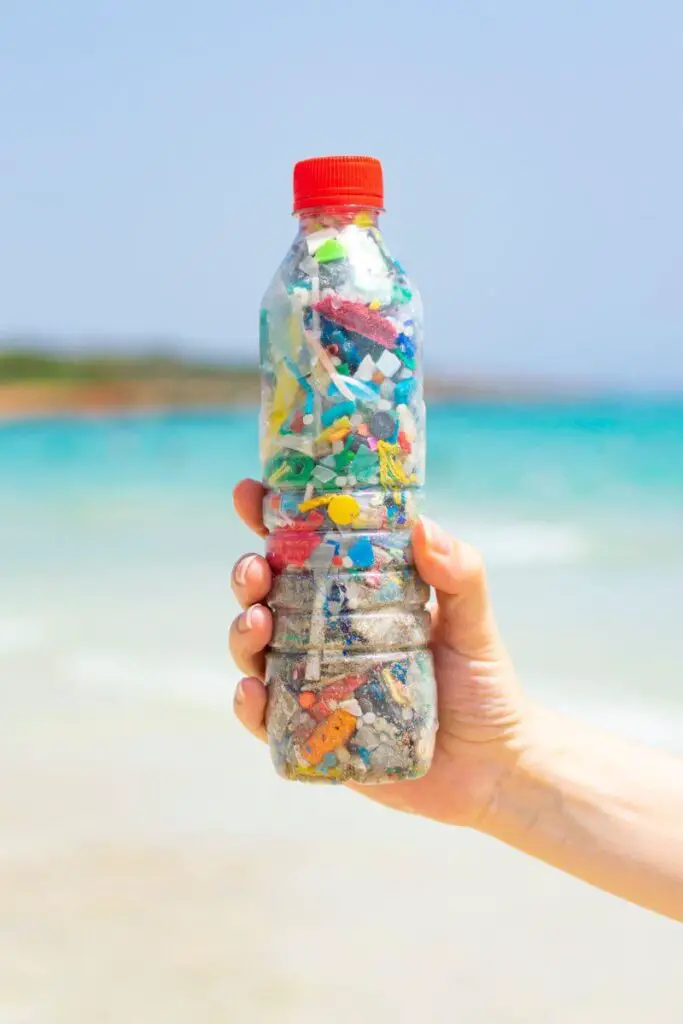
- Hire Local Guides: Local guides are knowledgeable about sustainable practices and can enhance your understanding of the ecosystem, benefiting both you and the reef.
Reef-Friendly Tips For Residents
- Promote Environmental Education: Engage in or organize local events and workshops that educate on the importance of coral reefs and how to protect them.
- Plant Trees: Trees such as ceiba, mango and other species with broad root systems reduce runoff by absorbing rainwater, decreasing the runoff that carries pollutants into the oceans.
- Invest in Solar: The ocean absorbs over 90% of atmospheric heat and about 30% of carbon dioxide emissions. Implementing solar power in your home reduces your reliance on fossil fuels and reduces greenhouse gas emissions, helping the ocean absorb even more heat and emissions.
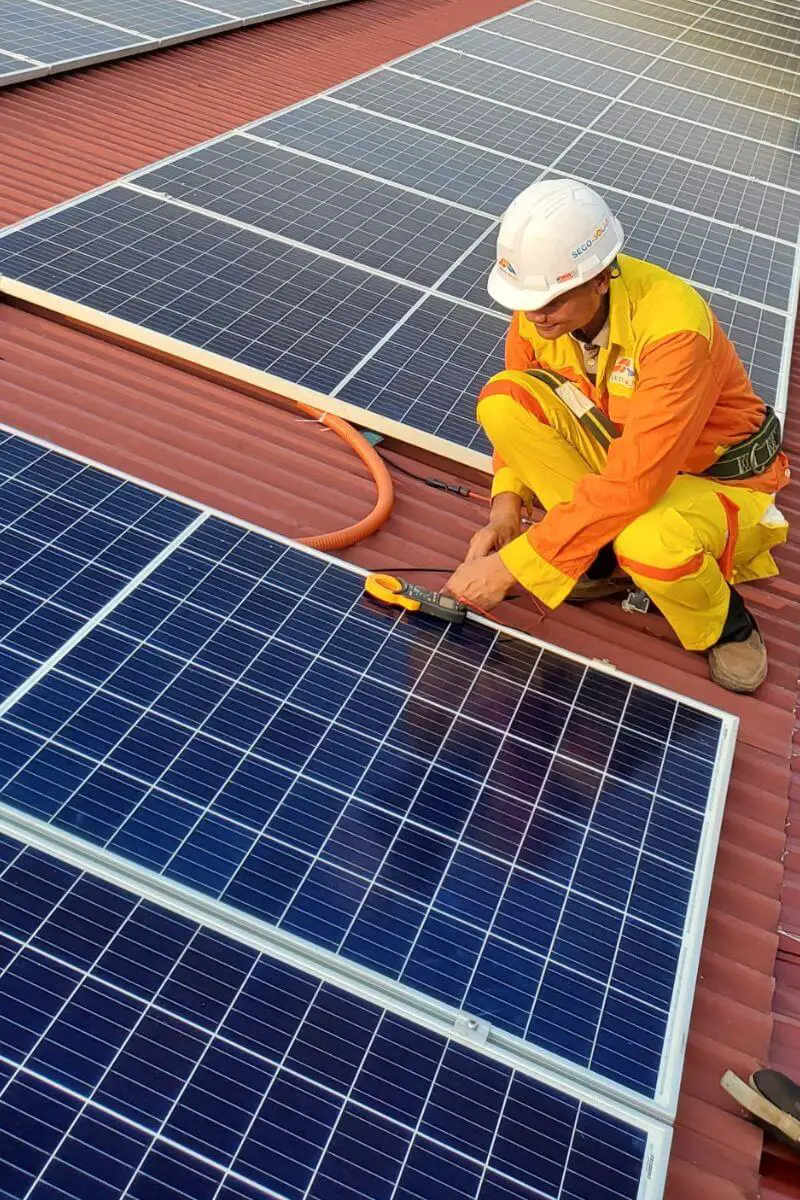
- Install Rainwater Catch Systems: Install gutters to catch rainwater and direct it to your cistern or tinaco for use in your home or garden.
- Avoid Chemical-based Pesticides & Fertilizers: Using eco-friendly lawn care products reduces the amount of toxic runoff entering our waterways and ultimately harming coral reef ecosystems.
- Advocate for Marine Protected Areas: Support initiatives to create or enforce marine protected areas that restrict harmful activities and allow marine environments to regenerate.
- Recycle and Dispose of Household Trash Properly: Effective waste management reduces marine pollution and its harmful impacts on coral reefs and marine life.
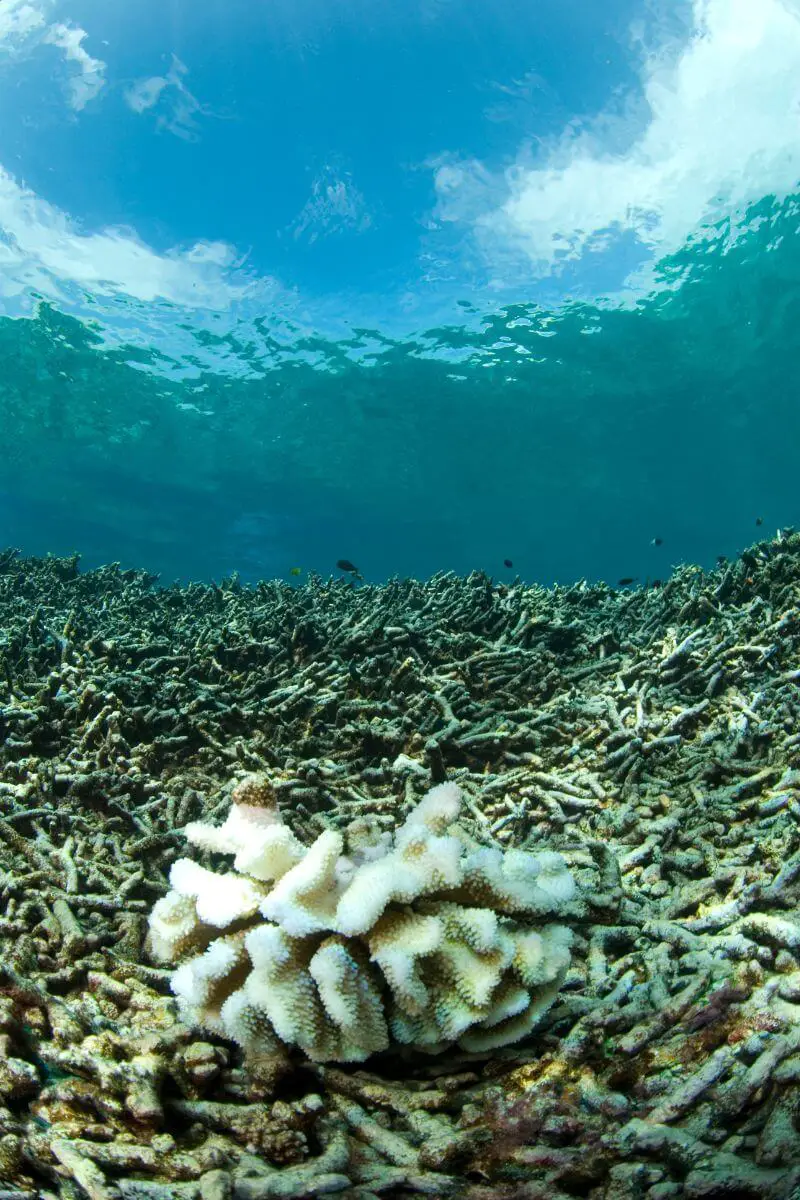
- Use Eco-Friendly Household Products: Switch to personal care and cleaning products that do not contain harmful chemicals that can wash off your body or from your home into waterways, affecting marine life.
- Be a Wastewater Crusader: Ensure proper treatment and disposal of wastewater where you live to prevent nutrients from feeding algal blooms that can suffocate corals.
- Report Environmental Violations: Alert local authorities about illegal dumping or harmful activities affecting marine life to help enforce environmental laws. An anonymous complaint may be filed by calling 089.
- Join the Lionfish Hunters: If you are a diver, join your local Lionfish hunting group to help remove this invasive, predatory and destructive species from the Mesoamerican reef.
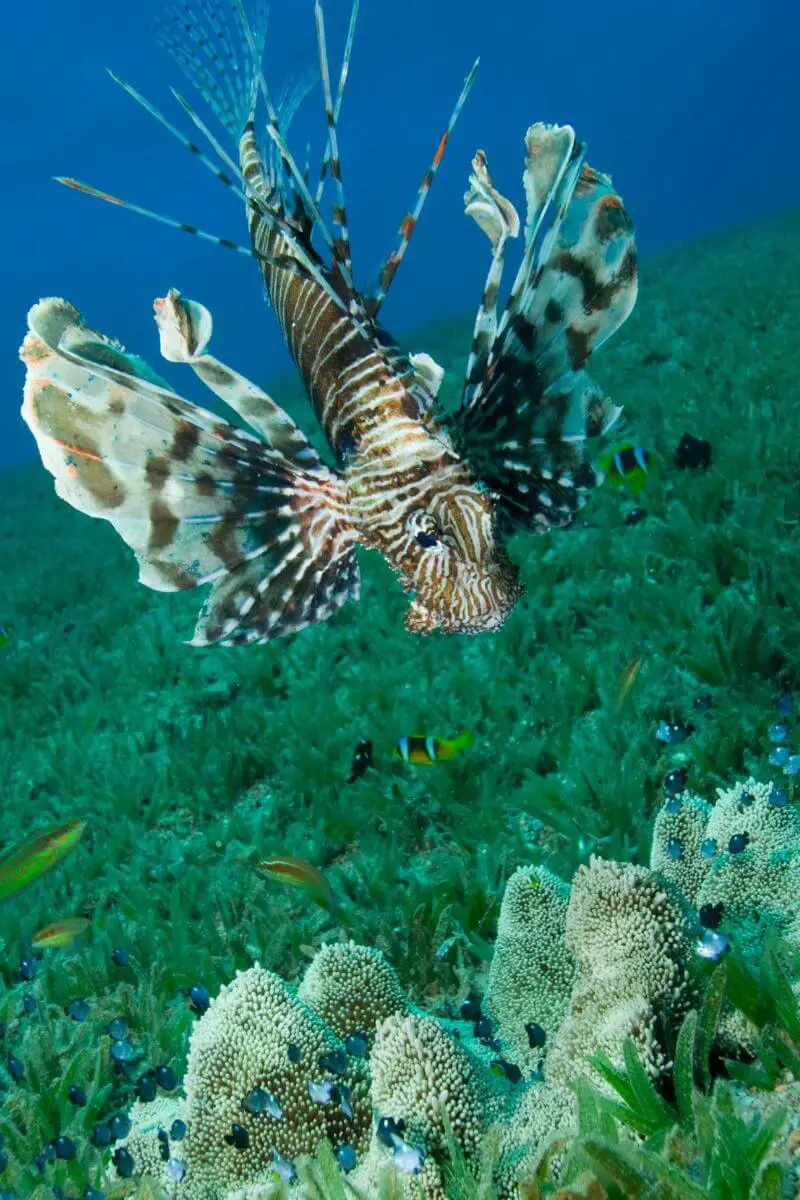
- Spread the Word: Share this article on your social media channels, in online groups and forums to help educate and inspire others.
By following some or all of these practical steps, we can all contribute positively to the conservation of the Mesoamerican Reef, enhancing our role in protecting one of the world’s most vital marine ecosystems.
If you enjoyed this article, you might also like:
10 Fun and Easy Day Trips from Puerto Aventuras
Is there a Lobster Season in Mexico?
Finding the Best Fishing Charter in Puerto Aventuras
Help Local Efforts Saving the Mesoamerican Reef by Sharing this Post
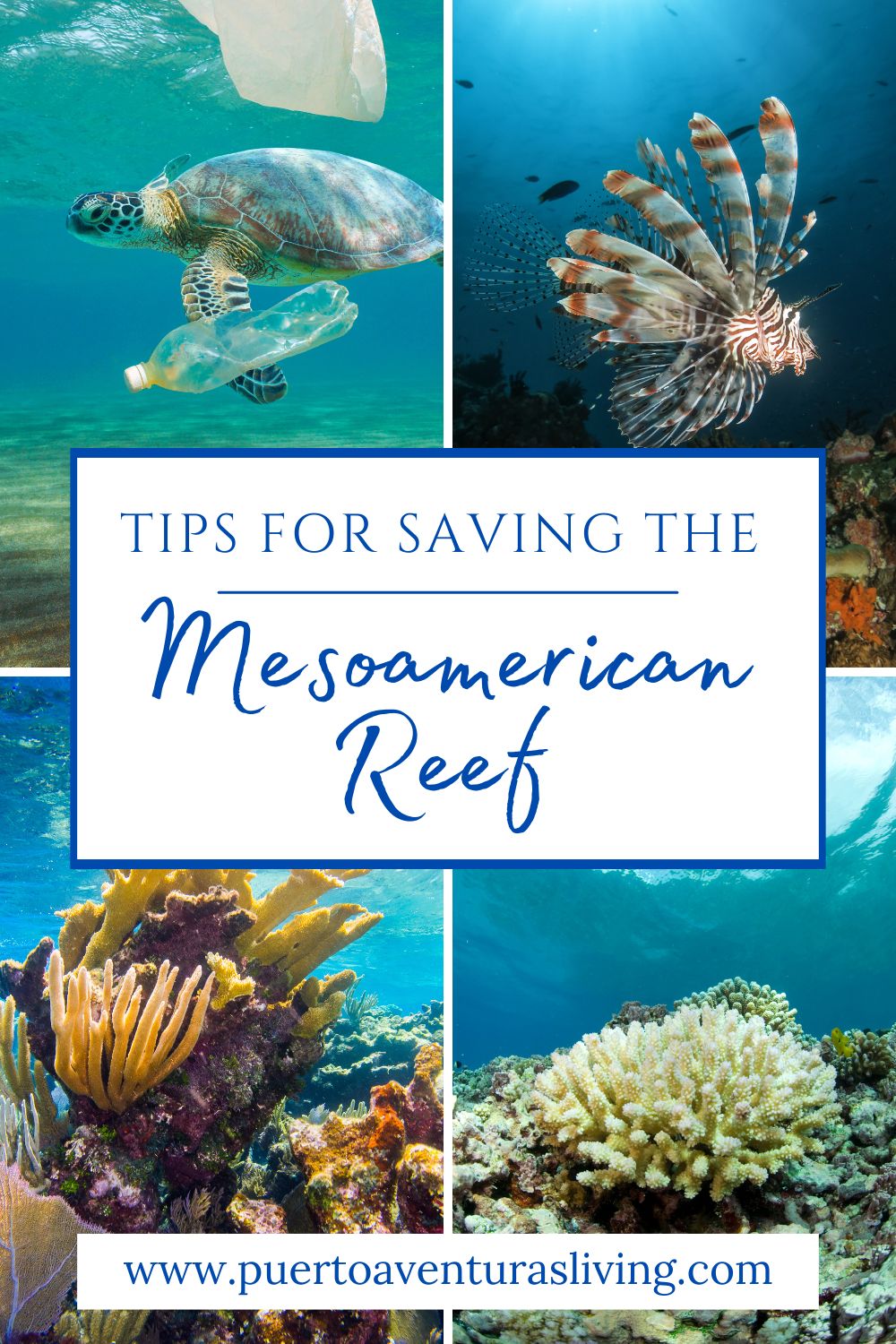


1 thought on “Saving the Mesoamerican Reef: 25 Tips for Reef-Safe Travel”